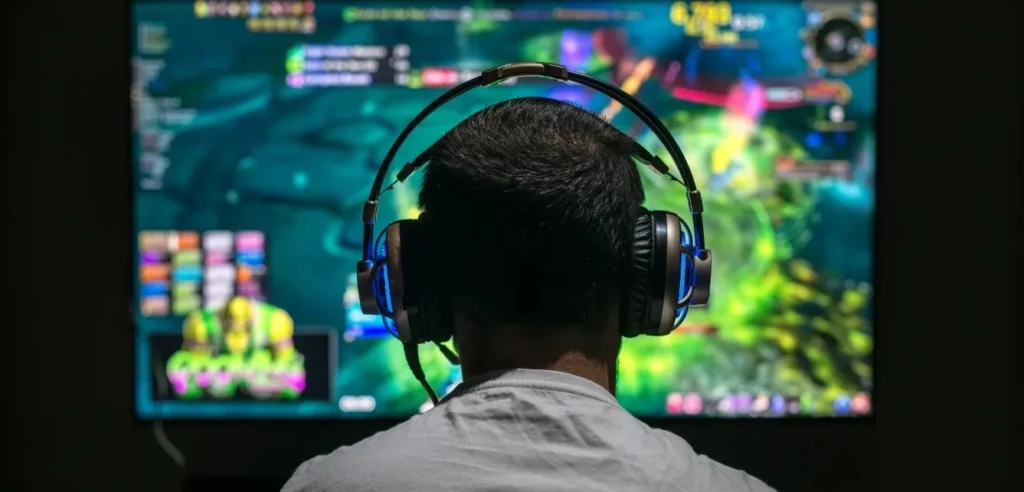Let’s cut to the chase—RMT (Real Money Trading) is the practice of buying and selling in-game items, currency, or services for real-world money.
I personally provided services in the RMT industry for over 12 years (read about my first $1,000 here).
And I know it’s one of those topics every gamer has heard about, but few fully understand.
Whether you’re new to the term, thinking of trying it yourself, or just want to avoid getting burned, you’re in the right place.
RMT definition: gamer paying with real money for game items or services.
How RMT works: through unofficial trades between players, usually outside the game.
The risks—from scams to account bans. Scams and stolen accounts are common.
Is RMT legal? It’s usually against game rules, but rarely illegal in real life.
Alternatives to RMT: streaming, esports, or official markets (such as CD key reselling)
RMT stands for Real Money Trading. In plain English: it’s when someone pays real-world money (USD, EUR, crypto, whatever) to get virtual goods, in-game currency, or services (like power leveling or account boosting).
Example: Buying 1 million gold in an MMO from a third-party website for $10.
Another: Selling your rare in-game weapon skin for PayPal cash or via a trading platform.
RMT exists outside the official game store. It usually involves player-to-player trades, either directly or through grey-market sites.

Here’s the process, simplified:
The Need: A player wants a rare item, more gold, or a boost—but doesn’t want to grind for hours.
The Seller: Another player (or “farmer”) has that item or time, and wants to make real cash.
The Deal: The buyer finds a seller—either via forums, Discord, specialized marketplaces, or sketchy websites.
The Transaction: Payment happens outside the game, often via PayPal, crypto, or bank transfer.
Delivery: The seller logs into the game and delivers the goods—sometimes directly, sometimes through “safe” methods to avoid detection.
Where does RMT happen?
MMOs (World of Warcraft, RuneScape, Final Fantasy XIV)
Mobile games (especially gachas)
Trading card games, MOBAs, FPS games (think: rare skins, accounts)
Types of things traded:
In-game currency (gold, gems, credits, etc.)
Rare items, skins, weapons
Full game accounts
Services (power leveling, boosting)
MMORPG gold selling: Buying gold in World of Warcraft from a third-party seller—classic RMT.
Account marketplaces: Sites where players sell entire accounts loaded with rare items or high ranks (e.g., League of Legends, Genshin Impact).
Skin trading: Selling a rare CS:GO or Fortnite skin for real money on marketplaces like SkinBaron or via Discord servers.
Mobile Gacha reselling: Players selling rerolled accounts with rare characters in games like Genshin Impact or Arknights.
In short: if there’s something valuable in a game and players can trade it, someone’s probably figured out how to sell it for cash.
Want to learn more about RMT? 👇
👉 Make money from my 12 years experience in RMT.
Check your inbox (or spam).
— Bobu
Techniques & methods I used cannot share publicly
Let’s be clear: RMT isn’t risk-free—for buyers or sellers.
Main risks:
Account bans: Most game publishers strictly forbid RMT. If you get caught, you could lose your account (and everything on it).
Scams & fraud: The RMT industry is filled with pure scams—fake listings, non-delivery, or chargebacks after you send your items.
Security risks: Sharing account info or clicking unknown links can lead to hacking, phishing, or malware.
Legal grey zone: In some countries, selling virtual goods can get you in legal trouble (as far as I know, only South Korea forbids it legally). In other countries, RMT is in a “grey area” (legal, but the law could change).
Game economy issues: RMT can inflate prices, devalue in-game effort, or lead to more bots/farmers in your favorite games.
Bottom line: If you choose to do RMT, using your main account can be risky, and do your homework. There’s always a risk, even on “trusted” sites.


Here’s the messy part—legality depends on where you live and what game you play.
Game publishers: Nearly all have terms of service (ToS) that ban RMT outright. They can ban your account at any time for participating.
Regional laws: In some countries (South Korea, China), there are laws specifically targeting RMT—usually aimed at fighting gold farming or gambling.
Europe & North America: Generally, it’s not a crime for individuals to buy/sell virtual items.
Taxation: Selling game items as a business? Like any business, expect to declare income.
Summary: RMT usually breaks the rules of the game, but rarely the law—unless you’re operating at scale or in a country with specific anti-RMT laws. Still, getting your account banned can hurt just as much.
If your goal is to profit from gaming—without risking your account or breaking ToS—here are a few alternatives:
Official creator programs: Some publishers pay for content, streaming, or referrals.
Esports tournaments: Legitimate prize money for competitive players.
Game testing & QA: Get paid to test games (look for jobs, not scams).
In-game marketplaces: Some games (e.g., Second Life, Roblox, Diablo IV) have official ways to cash out.
Content creation: Stream, make guides, or start a gaming blog (like this one).
🎁 Bonus alternative : Reselling game keys. It’s completely safe ✅
And I did it for over 12 years (9,000 CD keys sold)
To learn more you can read this article.
RMT is everywhere in gaming, but it’s a legal and security minefield. For most players, the best advice is: enjoy your game, don’t risk your main account.
👉 If you want to earn from gaming—join the newsletter!
I provided services in RMT for over 12 years!
Check out my other articles for more insider tips.
RMT means Real Money Trading—buying or selling in-game items, currency, or services for real money, outside official game shops.
RMT is risky. You can get scammed or banned from the game. Always check the game’s policy before trading.
To do RMT in a safer way, you can subscribe to my newsletter where I share tricks & tips for RMT.
RMT is usually against the game’s rules, but it’s rarely illegal in most countries. However, some regions have specific regulations.
Yes. Most games forbid RMT and can permanently ban accounts involved in real money trades.
Fake sellers, non-delivery, and account theft are common RMT scams. Stick to official marketplaces or avoid RMT to stay safe.
Yes. You can stream, join esports competitions, test games, or use official in-game marketplaces that allow cashouts. You can also resell game keys like I did for over 12 years.
It depends. If done correctly, RMT can be very lucrative (I started RMT 15 years ago). Though it can be risky, so it’s important to do things the right way!